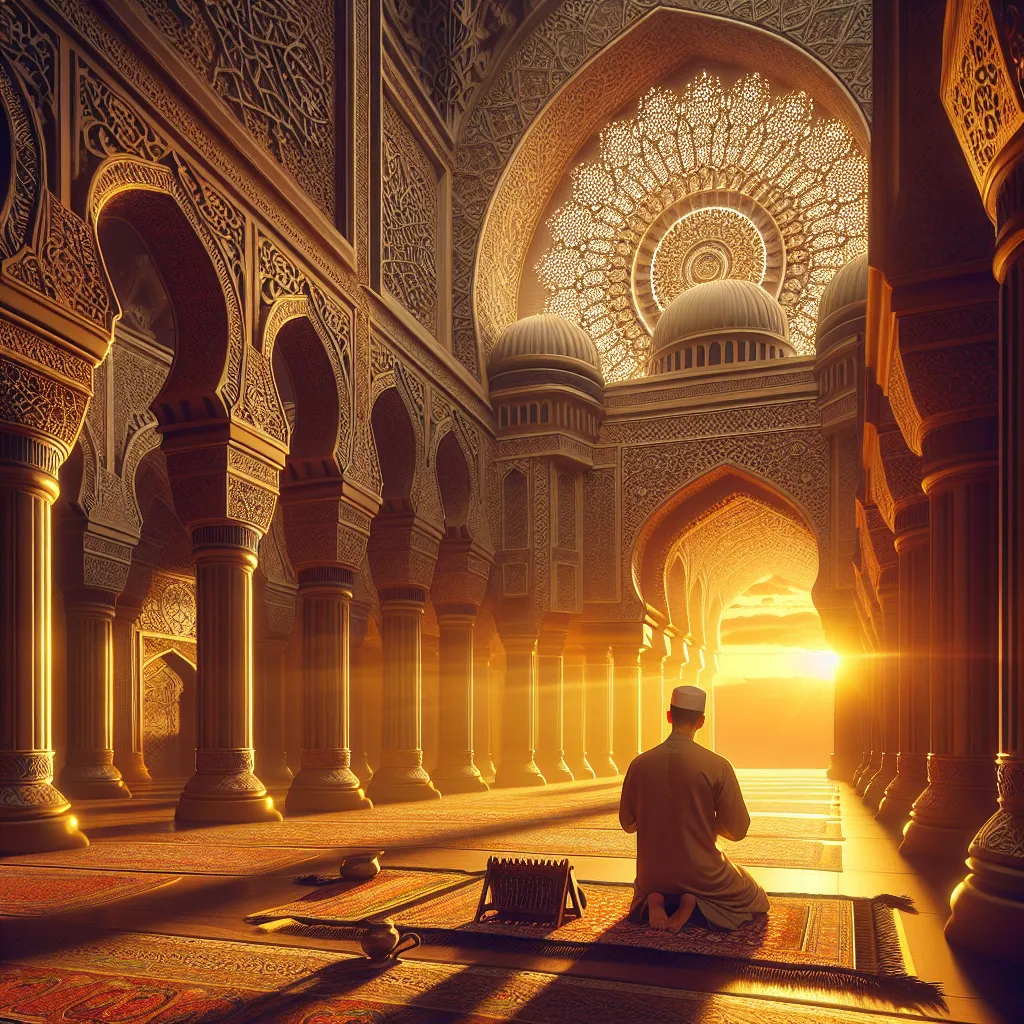
- Published on
- Authors

- Name
- You
The Importance of Prayer in Islam: Connecting with the Divine
In the grand tapestry of human civilization, few rituals resonate as deeply as the act of prayer. In Islam, prayer is not merely a routine; it’s a sacred communication with the Divine, an anchor in the ocean of life, and a beacon guiding towards spiritual enlightenment. Let us embark on an illuminated journey to understand why prayer holds such a venerable place in the heart of Islam, the intricate beauty in its timings and methods, and how this practice fosters an enriching connection with God.
The Pillar of Salah
Salah (prayer) is one of the Five Pillars of Islam, foundational acts that underpin a Muslim's faith and practice. Engaging in Salah five times a day, Muslims across the globe align their hearts, minds, and souls towards the Divine. Let's delve deeper into the elements and significance of this sacred ordinance.
Prescribed Times for Prayer
The prescription of specific times for prayer infuses a rhythmic sanctity into the daily lives of Muslims. Each time segment is a doorway to encountering Divine grace.
| Time | Arabic Name | Description |
|---|---|---|
| Early Morning | Fajr | Before dawn |
| Midday | Dhuhr | After the sun has passed its zenith |
| Afternoon | Asr | Later part of the afternoon |
| Evening | Maghrib | Just after sunset |
| Night | Isha | Once the night sky is completely dark |
Methods and Rituals
The act of praying in Islam is both a spiritual and physical discipline. Each of the five prayers consists of a series of postures and recitations known as Rak'ahs. These postures include:
- Standing (Qiyam): Reciting verses from the Qur'an
- Bowing (Ruku): Demonstrating humility before the Divine
- Prostration (Sujud): The ultimate act of submission to God's will
- Sitting (Tashahhud): Reflecting and bearing witness to the oneness of God
Cultivating a Divine Connection
Prayer in Islam goes beyond mere words and rituals. It is a transformative journey towards inner peace, a profound way to reorient the soul towards the Eternal. Let’s discover how.
Heartfelt Du’a: Personal Supplication
Aside from structured prayers, Muslims engage in Du’a – personal supplications where they communicate their deepest hopes, fears, and gratitude directly to God. This form of spontaneous prayer nurtures a sincere and heartfelt connection, emphasizing that the Divine is ever-present and accessible.
Spiritual Growth and Resilience
Prayer cultivates virtues such as patience, gratitude, and humility. By regularly engaging in Salah, individuals find solace and strength amidst life’s trials, transforming challenges into opportunities for spiritual growth. It serves as a daily reminder of moral and ethical guidance, promoting a life of compassion, justice, and sincerity.
The Role of Community
One cannot overlook the communal aspect of prayer in Islam. Performing Salah together, especially the Friday congregational prayer (Jumu'ah), enhances unity and solidarity among believers, fostering a sense of belonging and mutual support within the community.
The Mosque: A Center of Spiritual and Social Life
The mosque, or Masjid, serves as the heartbeat of Muslim communities. Beyond being a place of worship, it is a hub for educational, social, and charitable activities, reinforcing the communal bonds and collective spirit inspired by prayer.
Conclusion
In essence, the importance of prayer in Islam transcends the physical act of kneeling and prostrating. It is a profound communion with the Divine, a spiritual sustenance that nourishes the believer’s soul and propels them towards a life of piety, resilience, and communal harmony. Whether it's in the quiet solitude of an early morning or the shared unity of a congregational prayer, Salah touches the core of human existence, uniting believers in a timeless and boundless connection with the Divine.
Embark on this spiritual odyssey, let the rhythms of prayer make waves in the still waters of your soul, and embrace the Divine presence in every heartbeat and every breath.
May the journey be enlightening and the path ever luminously straight.
